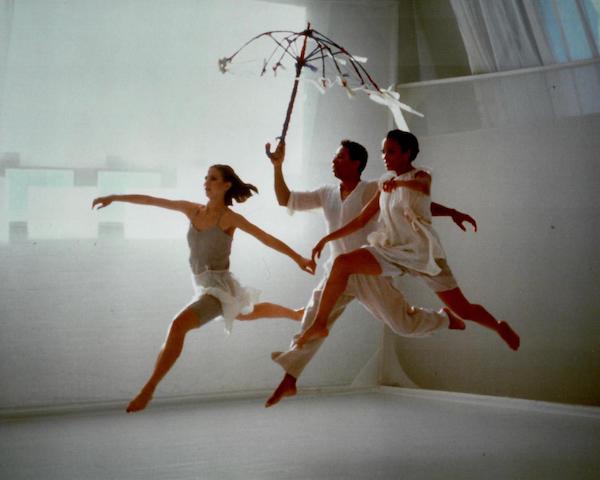
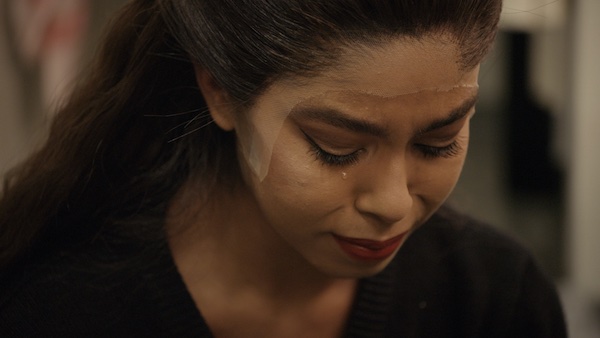
BY ELIZABETH ZIMMER | The 2024 Dance on Camera festival, running February 9-12 at Lincoln Center, is particularly rich and diverse. The world’s longest-running assemblage of dance film—now in its 52nd year—presents, in 11 different programs, a mix of shorts and features from around the world. Up first (Feb. 9, 7pm) is the full-length Swan Song, a documentary about the evolution of a 2022 production of Swan Lake at the National Ballet of Canada, under the supervision of Karen Kain, at the time in her final months as the company’s artistic director. Shut down by the pandemic in 2020, the ballet re-emerged two years later, greeted by full houses.
Kain, now 72, spent her entire career at the Toronto-based troupe, and her gentle presence pervades Chelsea McMullan’s film, which plays close attention to the needs of dancers to be accurately represented onstage. The decision to have the corps de ballet, the heart and soul of this nineteenth-century classic, go barelegged instead of clothed in white tights seemed, at the time, earth-shattering for Kain, who’s clearly a traditionalist, but she went with it. We listen to several young women of color most directly affected by the change, and observe their pleasure. Shaelynn Estrada, a self-described “half-Mexican army brat” from Texas, becomes the potty-mouthed spokesperson for the corps, declaring in the film’s last moments that “ballet’s punk-rock as fuck!” Swan Song is long and leisurely, and will appeal, I think, primarily to that cadre of young women deciding whether they want a career, as Estrada says, that requires them to go out “in front of thousands of people and do really hard things.”
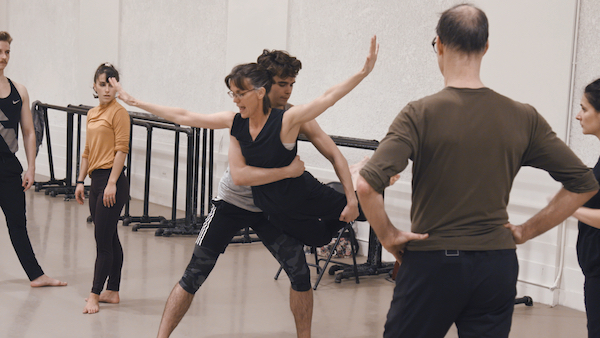
My favorites of the 36 films on view are those, like Swan Song, dealing with the transmission of dance information from one generation to the next. Screening on Feb. 11 at 6pm, the 54-minute August Pace: 1989-2019, made by Merce Cunningham alumnus Daniel Madoff, tracks most of the original cast of Cunningham’s 1989 piece in the process of handing the work on to younger artists. It’s a fascinating, rollicking adventure in a studio at New York’s City Center 30 years later, as the retired performers, most of them now widely dispersed and ensconced in second careers, struggle to recall the nuances of Merce’s direction and communicate it to dancers interested for the sheer love of the material. The Cunningham company has closed, and the Merce Cunningham Trust is doing noble work in keeping the repertory alive.
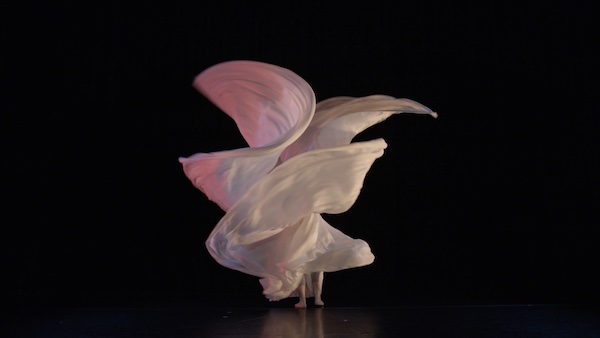
Another favorite film is a gargantuan multi-national project, 90 minutes long, which closes the Festival (Feb. 12, 6:30pm). Sabine Krayenbühl and Zeva Oelhaum’s Obsessed with Light would seem to be a sort of historical travelogue, tracing the life and career of Loïe Fuller (1862-1928), whose irrepressible spirit led her, in spite of an unlikely, columnar body, to become world-famous in her time for her intriguing mixture of artistic creation and scientific invention, of fabric and light. But the film is much more—a sort of cinematic dialogue between archival material about Fuller and her work (her journals are voiced by Cherry Jones) and an international crew of contemporary dance artists inspired by her. Chief among these is Manhattan’s own Jody Sperling, who’s devoted most of her professional life to recreating and preserving Fuller’s techniques. Also included are Basil Twist, who uses Fuller’s strategies but leaves human bodies out of the picture; Moses Pendleton, whose work with Pilobolus and Momix was apparently emboldened by Fuller’s experiments; fashionistas from labels like Dior and Valentino; and choreographers from Poland, Iceland, and the Netherlands. Black American choreographers Trajal Harrell and Bill T. Jones get very nearly the last word.
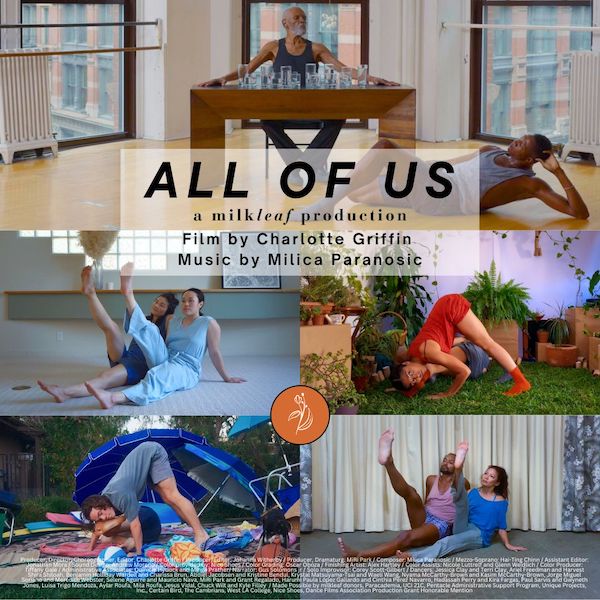
Often these features share programs with shorts. Saturday, February 10 at 1pm, the 58-minute Breaking Form looks at the life and work of Jane Comfort. It will be preceded by the delightfully chaotic screendance All of Us, a seven-minute tribute to the late, great choreographer, performer, and dance writer Gus Solomons jr by filmmaker Charlotte Griffin, in which empty rooms across the country fill with multi-generational, multi-cultural duets and all the furniture and other stuff that accompanies their lives, including dogs and a goat.
The Comfort film, Breaking Form, made by Alexandra Nikolchev, makes good use of grainy video clips as much as 40 years old, the first of them from Art on the Beach, a series of performances at the Battery Park landfill before Battery Park City was erected. This movie, like many others in the festival, suffers from too-rapid cuts between great old stills on which you’d like to linger. I’m told that the reason for this is to keep the finished films at a reasonable length, but we senior citizens have trouble assimilating information at breakneck speed. Comfort, a southern belle saved from a very different fate by being raised in Oak Ridge, Tennessee just after World War II, set out to become a painter, but she encountered Cunningham, became an experimental choreographer, and thrived, doing eccentric and political work for decades in a Tribeca loft she and her banker husband bought in 1978. Breaking Form documents their domestic life, as Comfort dances while pregnant and raising two kids, and her professional life crafting works that explored gender, racism, sexism, AIDS, and other, more lyrical situations.
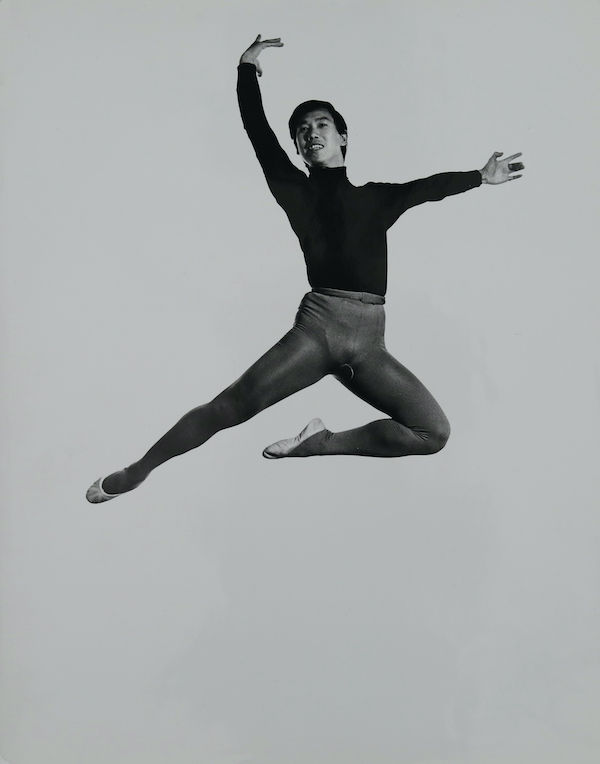
February 10 at 6pm, you can catch the world premiere of Ten Times Better, a film about an 88-year-old blackjack dealer in Las Vegas, George Lee, a Chinese refugee who originated the role of Tea in George Balanchine’s The Nutcracker in 1953. Turning 89, Lee recently appeared at the New York Public Library for the Performing Arts, where director Jennifer Lin first spotted photos of the dancer and began the research that made this film possible.
February 10’s 8:15pm program of seven international shorts includes Devouring Stones Up Close, a nine-minute film that left my head spinning due to the speed of its cuts, as it documents a crew of women in the woods of Virginia’s Eastern Shore. Made by Cat Rider and Zap McConnell, it abstracts “personal and shared rage, artistic harvesting,” and the spirit of those on whose land the dancers walk, create, and dance.
To check out the entire schedule of this superb festival, including a number of films for kids, visit filmlinc.org and dancefilms.org. Purchase tickets online by clicking here or at the box offices at the Elinor Bunin Munroe Film Center (212-875-52320; 144 W. 65th St.) and at the Walter Reade Theater (212-875-5601; 165 W. 65th St.). Tickets are $12 for Film at Lincoln Center Members, $14 for students, seniors (62+), and persons with disabilities, and $17 for the general public. Save with the discounted All-Access Pass for $99 and the discounted Student All-Access Pass for $59.
—END—
Chelsea Community News is an independent, hyperlocal news, arts, events, info, and opinion website made possible with the help of our awesome advertisers and the support of our readers. Our Promise: Never a paywall, no pop-up ads, all content is FREE. With that in mind, if circumstances allow, please consider taking part in our GoFundMe campaign (click here). To make a direct donation, give feedback, send a Letter to the Editor, or contact our founder/editor, send an email to Scott Stiffler, via scott@chelseacommunitynews.com.
To join our subscriber list, click here. It’s a free service providing regular (weekly, at least) Enewsletters containing links to recently published content. Subscribers also will be sent email with “Sponsored Content” in the subject line. That means it’s an exclusive message from one of our advertisers, whose support, like yours, allows us to offer all content free of charge.

Pingback: Twyla Tharp’s Two-Week, Three-Work Run at The Joyce Opens Feb. 13 - Chelsea Community News